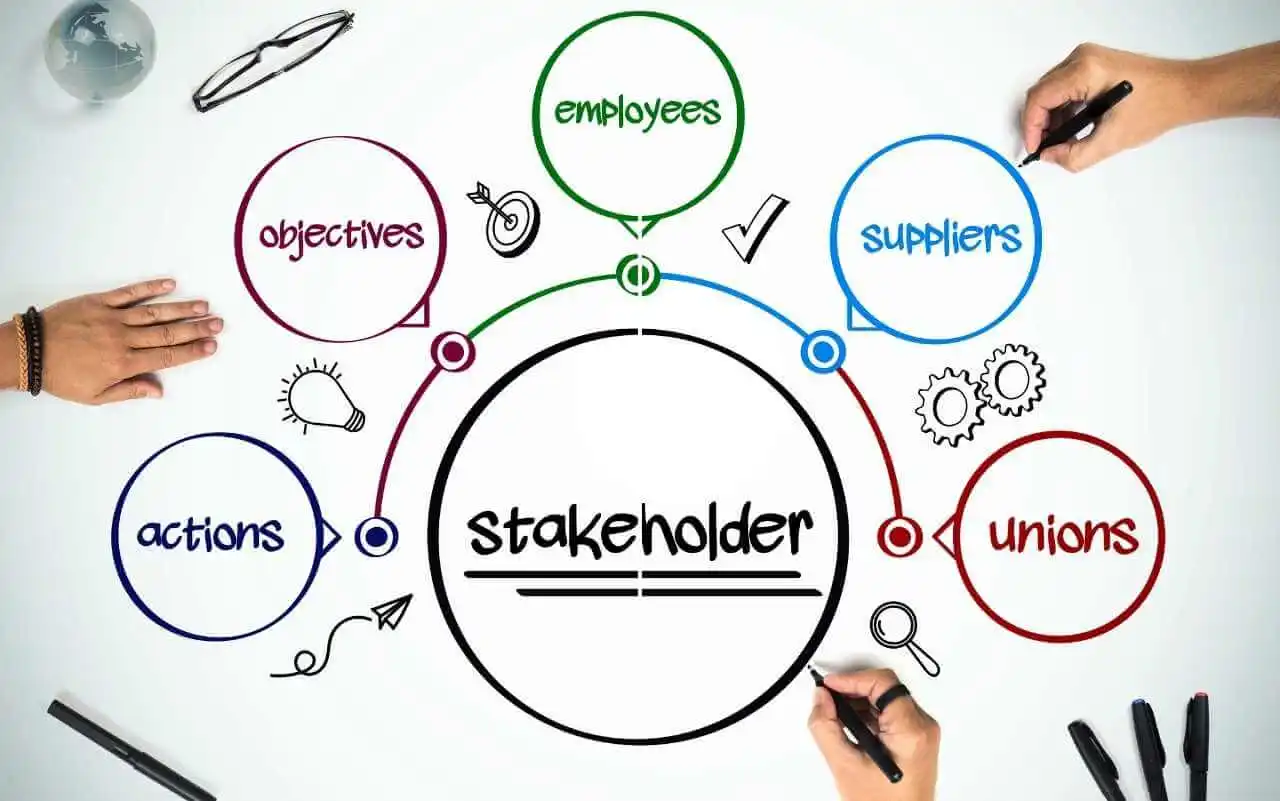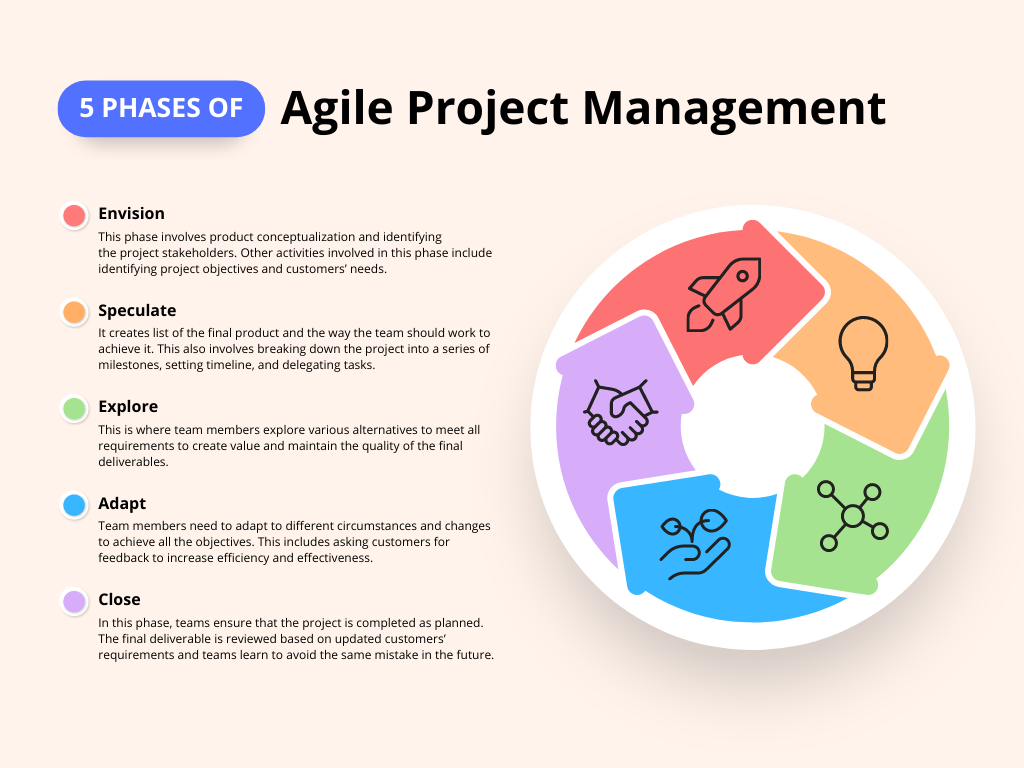Understanding the Importance of Project Execution Excellence in a Career Change
Switching careers can feel like you’re starting from scratch. But having a solid grip on project execution excellence can give you an edge. Think of it like knowing the best route in a complicated road network. Project execution excellence means you’re great at making plans work in real life, not just on paper. It’s about following through, solving problems as they pop up, and making sure the end result matches what was intended. In a career change, your ability to execute projects exceptionally can be your secret weapon. It shows possible employers that you’re not just a dreamer; you’re a doer. Whether you’re moving into a field that requires managing big projects or smaller tasks, your knack for seeing things through to completion with great results can set you apart. Remember, companies love hiring people who can confidently handle challenges and deliver. So, project execution excellence isn’t just a skill; it’s proof you can adapt and thrive anywhere.
Identifying Your Strengths in Project Management for Career Advancement
Before moving your career in any direction, it’s crucial to take a solid look at what you’re bringing to the table, especially when it comes to project management skills. Knowing your strengths not only gives you the confidence to pitch yourself for higher roles but also lets you tailor your career path strategically. Are you the go-to person for problem-solving? Or maybe your superpower is keeping the team anchored and focused amidst the chaos? Perhaps, your knack for clear communication bridges gaps within the team, ensuring everyone is on the same page. Identifying these skills shouldn’t be a guessing game. Consider feedback from peers and managers, reflect on projects where you felt in your element, and don’t shy away from online skill assessments. This trio can help pinpoint what you excel in. Once you know your strengths in project management, such as leadership, time management, or adaptability, you can leverage this knowledge. It makes you a strong candidate for advancement opportunities that demand these skills. Remember, in the landscape of career progression, understanding your project management strengths is like having a compass—It points you in the right direction.
Setting Clear Goals for Your Career Transition
Before diving into a career change, it’s crucial to set clear goals. Ask yourself: what do I want to achieve with this change? Is it more salary, better work-life balance, or a shift to a field you’re passionate about? Once you have your answer, break your main goal into smaller, manageable milestones. For instance, if your aim is to shift into digital marketing, start by learning the basics through online courses or workshops. Then, move on to gaining practical experience, perhaps by managing social media for a local business or creating content for your blog. Remember, each small step should be a concrete action that moves you closer to your big goal. This approach not only makes the process less overwhelming but also allows you to track your progress and adjust your strategy as needed. Keep your goals realistic and give yourself a flexible timeline to achieve them. This way, you can navigate your career transition with confidence and clarity.
Mapping Your Path: The Role of Strategic Planning in Project Execution
To switch careers successfully, you need more than just determination. You need a clear roadmap. Strategic planning isn’t just corporate jargon; it’s your compass for this journey. Think of it as plotting your route before embarking on a long trip. Without a map, you’re likely to wander off course or, worse, hit a dead end. In project execution, especially when aiming for a career change, pinpointing where you want to go and how to get there makes all the difference. First, outline your career destination. It’s crucial to know your end goal. Are you aiming for a leadership role in a new field or seeking a complete industry switch? Next, assess the skills and experiences required. This might involve additional training or certifications, so plan for these steps. Also, consider the milestones along the way. These are like checkpoints that ensure you’re on the right path. They could be completing a course, landing a part-time role in a new field, or even networking events with industry insiders. Each milestone achieved brings you closer to your ultimate career goal. Remember, while the endpoint is important, the journey there is equally significant. Strategic planning ensures you reach your destination efficiently and effectively, making the career change not just a dream but a well-navigated reality.
Essential Skills for Achieving Project Execution Excellence
Achieving project execution excellence is not just about managing tasks; it’s about mastering a set of skills that empower you to navigate through a career change successfully. First off, effective communication is key. You need to be clear and concise, ensuring your team knows what’s expected at every turn. Then, there’s leadership and motivation. Leading by example and keeping your team motivated, especially during tough times, can make a big difference in the outcome of your projects. Problem-solving is another critical skill. Obstacles will always pop up; being able to tackle them head-on, without losing sight of your goals, is what sets successful projects apart from the rest. Don’t forget about time management. With deadlines always looming, knowing how to prioritize tasks ensures that you’re always moving forward without compromising the quality of your work. Lastly, adaptability. In a world where change is the only constant, being able to pivot and adjust your plans based on new information or circumstances is essential for staying on track. Mastering these skills will not only enhance your project execution excellence but also position you strongly for a successful career change.
Overcoming Challenges in Career Change Using Project Management Principles
Shifting careers could bring up a heap of hurdles; however, smartly applying project management principles can make the journey smoother. Think of your career change as a project. Define clear goals akin to project objectives. Ask yourself, what’s driving this change? What’s your destination? Understanding your motivation solidifies your project’s foundation. Next, draft a roadmap. Just like a project timeline, outline the steps to reach your new career. This might involve upskilling, networking, and perhaps some personal branding. Here’s a golden rule: always adapt. Projects rarely go exactly as planned, and your career switch could hit snags, from unexpected skill gaps to market shifts. Embrace the agile methodology here; pivot as needed while keeping your eye on the ultimate goal. Regularly check in on your progress. In project management, this could be a weekly team update; for your career, it could be a reflective journal or meetings with a mentor. These checkpoints allow you to celebrate wins, however small, and recalibrate if you’ve veered off the path. Lastly, manage your resources wisely. Much like project budgets, your time, energy, and finances are limited. Avoid burnout by allocating these assets thoughtfully and prioritizing tasks that move you closer to your goal. By viewing your career change through the lens of project management, obstacles become less intimidating and more like hurdles in a well-planned project. Remember, resilience and flexibility are key. Keep pushing forward, and let these principles guide your path to a fulfilling career transition.
Building a Support Network for Successful Career Transformation
When changing careers, going it alone is a tough road. Having people to lean on can be the difference between success and struggle. Here’s why you need a support network and how to build one. First, understand that your network should include a mix of mentors, industry contacts, friends, and family. Each plays a unique part in your journey. Mentors guide you with their wisdom and experience, helping you avoid common pitfalls. Industry contacts keep you in the loop on trends and opportunities. Friends and family offer emotional support, keeping you motivated during tough times. To build this network, start by reaching out to professionals within your desired field on platforms like LinkedIn. Don’t shy away from asking for advice or informational interviews – most people are happy to share their knowledge. Next, consider joining relevant groups and forums where you can exchange ideas and experiences with others who are on a similar path. Remember, building a strong support network won’t happen overnight. It takes time and effort, but the rewards make it worth it. With the right people by your side, navigating a career change becomes less daunting and more doable.
Leveraging Project Execution Excellence in Job Interviews
When you’re looking to nail your next job interview, demonstrating your project execution excellence is key. But how exactly do you do that? First, speak about specific projects you’ve led or significantly contributed to. Mention the challenges you faced, the strategies you applied to overcome them, and the outcomes. Use numbers to quantify your success wherever possible—like budget savings or time reductions. This shows you’re not just talking; you’re about getting results. Next, highlight your leadership and teamwork skills. Describe how you rallied your team, managed different personalities, or used innovative approaches to meet your project’s goals. Remember, employers love problem solvers who can work well with others. Also, don’t shy away from discussing what you learned from projects that didn’t go as planned. This showcases your ability to adapt and grow, vital traits for any job. So, walk into your interview ready to share concise stories that illustrate your project execution excellence. It will set you apart as a candidate who can plan effectively, execute efficiently, and confidently lead.
Adapting to New Roles: Continuous Learning and Improvement
Jumping into a new career or role? The secret weapon is continuous learning and improvement. It’s like upgrading your personal software. You’ve got to stay curious, absorb new info like a sponge, and keep tweaking your skills. Here’s the deal: the job world’s always on the move, throwing new tech and ideas around. If you’re not learning, you’re falling behind. Don’t just do your job. Dive deep. Understand the why behind the what. Take extra courses, read relevant books, or even find a mentor. Make mistakes? Cool, that means you’re trying. Reflect on them, figure out where you goofed up, and patch it up for the next round. That’s how you level up in this game. Keep that cycle of learning, improving, and applying on repeat, and you’ve got yourself a winning strategy for adapting to any new role.
Summary: Navigating Career Change with Confidence through Project Execution Excellence
Changing careers feels like a big leap into the unknown, but it doesn’t have to be scary if you’ve got the right tools in your kit. Think of project execution excellence as your secret weapon, something that makes you stand out. Why? Because mastering project execution skills means you’re good at planning, organizing, and following through – all traits any employer in any field values. Whether you’re diving into a tech job, switching to creative fields, or stepping into management, showing you can handle projects from start to finish with finesse tells potential employers you’re reliable, adaptable, and ready to take on challenges. So, how do you get there? First, learn the basics of project management. Then, practice by leading small projects, either at work or in volunteer positions. Always be on the lookout for new techniques and tools that can help you improve your game. Remember, the confidence to navigate a career change comes from knowing you’ve got the skills to land on your feet. With project execution excellence, you’re not just jumping; you’re strategically moving toward your next big opportunity.








